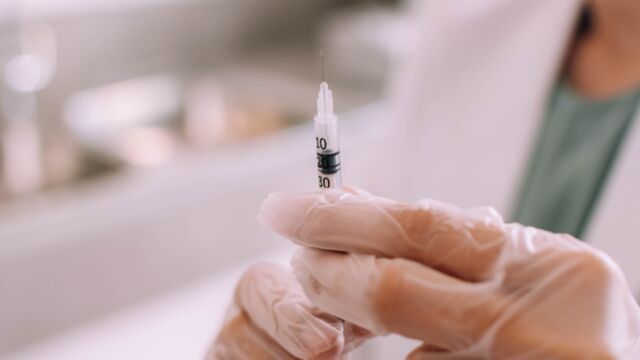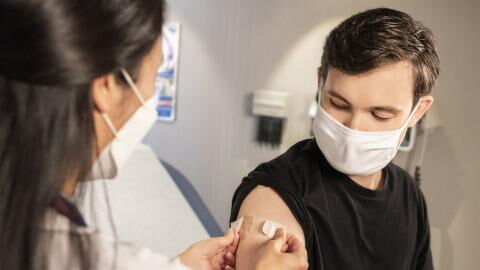Coronavirus survivors are twice as likely to develop side effects from the Pfizer/AstraZeneca vaccinethan those who have never had the virus, data from the Zoe COVID-19 Symptom Study App suggests.
Discover our latest podcast
COVID survivors may suffer from mild vaccine side effects
Figures from the app show that 33% of those who had previously recovered from coronavirus developed at least one mild side effect from the Pfizer vaccine, such as fatigue or a headache, up to a week after receiving their jab. Meanwhile, out of those who have had the good fortune of never being touched by the virus, only 19% suffered from complications.
The Zoe app revealed that the most common side effect was fatigue (9%) with headaches coming in second at 8% and chills rounding out the top three with 4%. The data also showed that these symptoms were most likely to make themselves known within 48 hours after the jab and very rarely lasted more than three days.
Far from a bad thing
Professor Tim Spector, an epidemiologist at King's College London who leads the Zoe COVID-19 Symptom Study App, explained that the reason why COVID survivors are more likely to develop side effects isn’t anything bad at all. It’s actually indicates that the vaccine is acting as a booster shot rather than a first jab:
It is really suggesting that if you have had Covid before your first vaccine it is behaving a bit like the second one — like a booster.
The Zoe app previously conducted a study of people of all ages who in total, had 40,000 jabs between them. Out of all participants, 37% had pain or swelling near the injection site after the first dose, which increased to 45% after the second dose. A further 14% of people also reported experiencing a mild side effect within a week of getting their first dose compared to 22% after the second jab. This suggests that the second dose of the coronavirus vaccine (or first for COVID survivors) is successful in prompting a stronger immune response. Spector elaborated:
People already had an immune response and they are getting an even bigger booster so that their immunity is going to be stronger. I am expecting once we analyse and get a bit more of the data we are going to show that this group who previously had COVID, maybe six months before, have an even bigger protection, even bigger than the 53 per cent after that single dose.
Spector believes that given more research, people who have already had coronavirus may only need one vaccine as opposed to two, which could ‘potentially save around 10 million vaccines or at least it could be delayed maybe several months more.’
But even so, more research is needed and surviving COVID is no reason to reject a vaccine, especially when new strains are constantly on the move. Vaccines still increase the chances of a stronger immune response, and it’s safe to say most of us would much rather have a headache than coronavirus.















